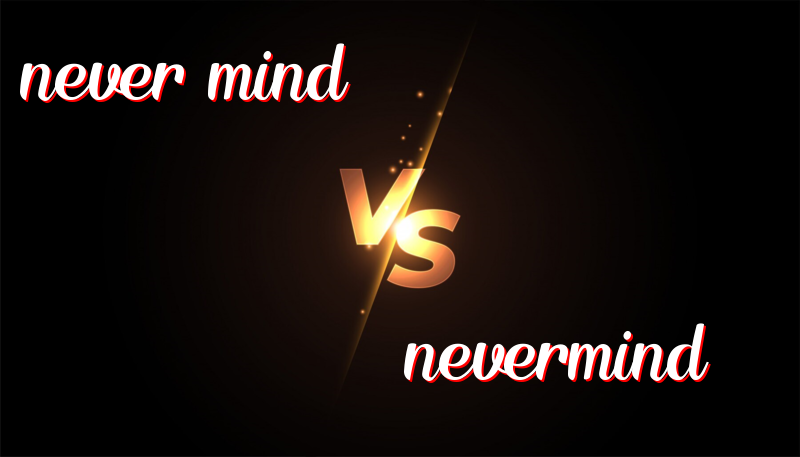Understanding Never Mind vs. Nevermind: A Simple Guide
October 21, 2024
The Difference Between “Never mind” and “Nevermind”
Many people mix up “never mind” and “nevermind,” but they are different in meaning and use. Let’s learn more about them!
History
“Never mind” has been used for a long time. People use it to tell someone not to worry or it is okay to forget something. “Nevermind” is newer and is often used in pop culture, like in music and book titles. It can mean ignoring something or not giving importance to it.
How to Use Them
Never mind
- “Never mind” is made up of two words.
- Use “never mind” when you want someone to forget about what was said or done.
Examples:
- Never mind, it is not important anymore.
- Oh, never mind. I found my keys.
- Never mind, we can go there tomorrow instead.
- Never mind about the rain; let’s play inside!
- If you do not understand, never mind, I will explain again later.
Nevermind
- “Nevermind” is one word.
- It is often used as a name or title, like for a song or album.
Examples:
- The band’s album is called “Nevermind.”
- She wore a shirt with the word “Nevermind.”
- In literature, “Nevermind” might be seen as a unique title.
- “Nevermind the noise, just focus on your work,” he said jokingly.
- The artist emphasized “Nevermind” in his painting series.
Trick to Remember the Difference
Remember, “never mind” is for talking, and “nevermind” is for names or special titles. If you’re saying it to someone, it’s two words: “never mind.” If you’re naming something, it’s one word: “nevermind.”
Summary
To summarize:
- Never mind: Used in sentences to tell someone not to worry or forget about it.
- Nevermind: Usually a name or title, less about telling someone something.
Next time you use these words, remember how they are different and their special uses!

Leave a Reply
You must be logged in to post a comment.